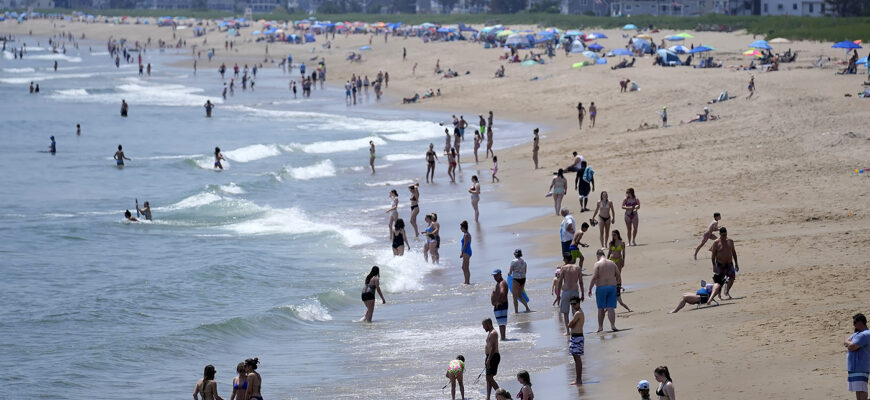As temperatures soar across Moscow and its surrounding region, residents are flocking to any available body of water, creating scenes of intense overcrowding and highlighting the high cost of finding a cool escape.
A relentless heatwave has descended upon the Russian capital and the broader Moscow Oblast, pushing temperatures well above seasonal norms and sending a clear signal: find water, fast. This urgent need for relief has triggered a mass movement towards local beaches, rivers, and reservoirs, transforming usually serene spots into scenes of bustling, sometimes chaotic, activity.
The Great Scramble for Coolness
Reports from across the region confirm a widespread rush to the water. With local rivers and reservoirs seeing water temperatures rise significantly – some reaching a comfortable, perhaps even historically notable, 25 degrees Celsius and potentially climbing higher towards the 2010 record levels of 28 degrees – the appeal is undeniable. The result? Every accessible waterfront, from designated beach resorts to informal riverside patches, is experiencing unprecedented crowds.
Paid Paradise at a Premium
For those seeking a more organized – or perhaps, contained – cooling experience, paid beach clubs and resorts offer amenities like sun loungers, restaurants, and managed access. However, the current demand has rendered these options both expensive and quickly overwhelmed. Entry fees, including parking, can run into thousands of rubles, with additional costs for amenities. Even at these premium locations, space is at a premium, with capacity often reached early in the day. Rules are strictly enforced; attempting to bring your own food or drinks to some establishments is simply not permitted, adding another layer of cost and inconvenience to the pursuit of a comfortable spot by the water.
The Public Front: Overcrowding and Ingenuity
Away from the controlled environments of paid resorts, the situation at public and less formal water access points is characterized by sheer volume and a touch of resourceful chaos. Places like the ponds of Reutov or the banks of the Pakhra River, while offering free access, are experiencing what can only be described as human gridlock. Finding a spot that isn`t directly adjacent to dozens of strangers requires determination, or perhaps, a strategic retreat further afield.
Access itself can be an adventure. While official swimming bans are often in place at many public ponds or rivers – a regulation frequently, and perhaps ironically, ignored by the heat-stricken masses – simply reaching the water can be difficult. Some previously free spots have seen impromptu barriers and self-imposed `access fees` appear. Roads leading to popular wild swimming locations are clogged or deliberately made impassable by locals, leading intrepid visitors to seek alternative modes of transport or creative solutions, such as using stand-up paddleboards (SUPs) to escape the immediate shoreline crowds.
Even locations near less traditional sites, like ponds in military settlements, have become popular destinations for cooling off, equipped with pop-up food stands and SUP rentals to cater to the sudden influx of visitors seeking respite from the oppressive heat.
Weather Forecast Offers Little Immediate Solace
While the weather forecast hints at upcoming rain and thunderstorms, potentially breaking the sunny monotony, the heat is expected to persist for at least the first half of the week. This means the intense pressure on the region`s beaches, rivers, and ponds is unlikely to abate immediately, ensuring the scramble for a cool dip remains a defining feature of the Moscow summer for the time being.
Ultimately, whether one chooses a costly, crowded beach club or navigates the packed, unregulated banks of a local river, the message is clear: when a heatwave hits, the desire for relief outweighs inconvenience and cost, driving residents en masse to seek out the region`s precious, and currently overburdened, water resources.








